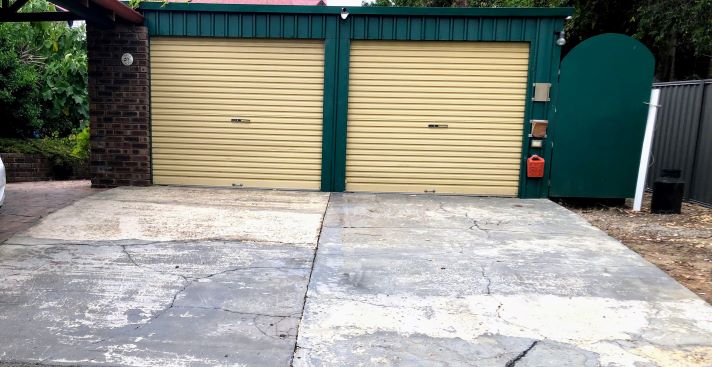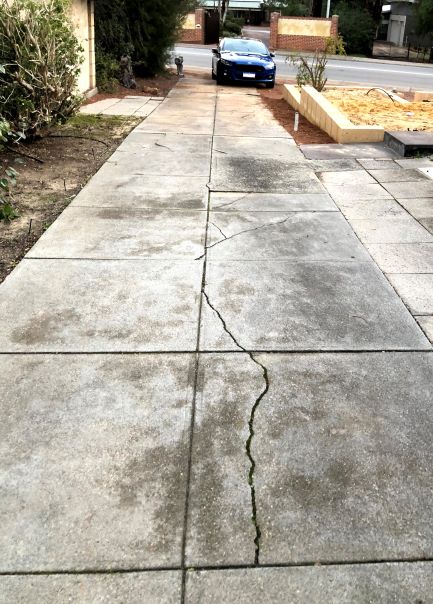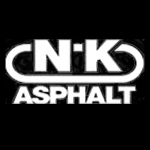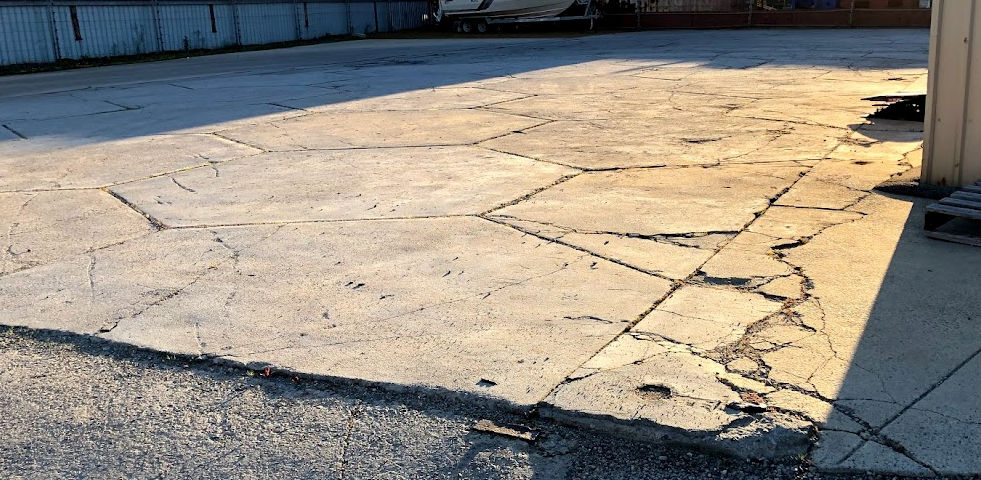We use our driveways every day, so slowly over time the surface will wear and eventually you’ll be looking for a new driveway surface. If your property features a concrete driveway and you’ve had enough of concrete driveway repairs, what are the best alternatives?
In this article we consider a few alternative materials to concrete and discuss the benefits and disadvantages of each before arriving at the best driveway resurfacing material.
When do you need concrete driveway resurfacing or replacing?
Australia’s hot climate and severe weather can cause issues for concrete driveways. There’s a good chance that if you’ve reached this page, your driveway is showing signs of aging thanks to these factors. Do these signs mean your concrete driveway needs resurfacing or replacing?
The most obvious sign that you need immediate action is if the driveway has severe cracking. This implies the surface can’t cope with the level of use or other external factors experienced. If you disregard this damage, water will quickly seep in and cause far more debilitating cracks. Driveway resurfacing or replacement is recommended as filling the gaps is often a short-term and costly ongoing solution.
Likewise, severe potholes or dips causing drainage issues are a sign that the concrete is well past its use-by date.
Is concrete the best material for your driveway in Australia?
The short answer is no.
As mentioned, Australia experiences extreme climate conditions which means concrete or asphalt are the best regarding durability. However, thanks to the gaps in concrete surfaces, this material lacks a resistance to smaller natural factors such as ants and weeds. The gaps in concrete are also prone to further cracking or dipping, especially around corners or at ends of a driveway.
Maintenance wise, concrete repairs are often more complex, and patchwork is easily noticed. Then when you need more concrete driveway repairs, the process is far more costly than asphalt resurfacing. This is because concrete usually requires demolition and removal of the old driveway before a full replacement, as only resurfacing with a coating will give only temporary relief, leading to eventual replacement.

An aged concrete driveway prior to being removed and resurfaced with asphalt.
Concrete driveway alternatives for large properties
So then, are there driveway alternatives for large driveways in WA? Below we discuss the common materials used and share the advantages or disadvantages of each.
Gravel
Crushed gravel is the option with the cheapest upfront cost. Aside from its price, there aren’t many long term benefits of a gravel driveway in WA. Loose gravel over time, is the roughest surface to drive on, meaning you’ll need to reduce your speed to minimise further loosening of the surface.
Gravel surfaces will also quickly deteriorate and become displaced during rain and storms. In winter, potholes and mounds will appear making the driveway a hazard for you and your vehicle. Furthermore, in summer, gravel dust will regularly arise and cause issues for visibility and dust over adjacent areas.
Brick pavers
Brick is a common driveway surfacing material for small suburban residential properties. On longer semi-rural properties, brick pavers are impractical due to the time and money required to lay them. Not to mention the time needed for repairs, weedspraying and maintenance as bad weather and weeds can cause problems. Brick paving will often slip on sloping driveways and open up to then become loose.
Concrete
Concrete shouldn’t be laid as a thin layer over old concrete as it may laminate (loosen) and will crack again, just as a coat of plaster will on a cracked wall.

Dirty, old cracked driveway with shifting slabs before being replaced with a new asphalt surface.
Crushed granite
Crushed granite roadbase is a cheaper option to replace a concrete driveway, but once again, maintenance is its biggest shortfall. A crushed granite driveway often needs to be replenished with new crushed granite roadbase. This is time consuming and adds up over time. However, if laid correctly initially, it can often be reworked and a layer of new asphalt applied to give the best long term result.
Hot-mix asphalt
Asphalt in general is frequently used as an alternative for concrete driveway resurfacing, but hot mix asphalt improves results even further.
Hot-mix asphalt has a similar lifespan to concrete, but asphalt is often more practical and easier to maintain. Asphalt can easily be repaired if needed and patchwork is cheaper and less noticeable than on concrete. Then when it comes to resurfacing, hot mix asphalt can be resurfaced faster and more cost-effectively than concrete. Concrete driveway resurfacing requires a full demolition, removal, disposal and replacement approach over an extended period, whereas asphalt will need minor preparation and resurfacing of up to maybe 2,000m2 per day in a car park or larger driveway.

Split asphalt driveway with a feature garden in the centre to guide the direction of traffic.
Best driveway resurfacing material
There’s a reason why asphalt is the most used surfacing material in Australia. Hot mix asphalt is highly durable for vehicle traffic, weather conditions, and other natural elements such as plant roots and weeds.
Hot mix asphalt is also far more flexible and versatile, allowing for a tight seal around corners and alongside kerbs.
Available in three colours, asphalt has a relatively smooth surface which provides little to no glare. Its classy appearance is easily coupled with kerbing and/or landscaping to improve the visual appeal of any property.
Furthermore, asphalt is one of the most cost-effective alternatives for commercial and residential driveway resurfacing projects. These cost-saving benefits are especially noteworthy when calculating repair and maintenance costs.
Find out more about asphalt vs concrete for driveway applications.
Resurfacing a concrete driveway with asphalt in WA
If you’re looking to avoid concrete driveway resurfacing and upgrade your driveway with a hot mix asphalt solution, you’re in the right place.
NK Asphalt is Perth’s best choice for driveways, car parks, and commercial areas between the sizes of 150m2 and 50,000m2.
Enquire today to receive your free measure and quote, and we look forward to creating your perfect driveway.
share


